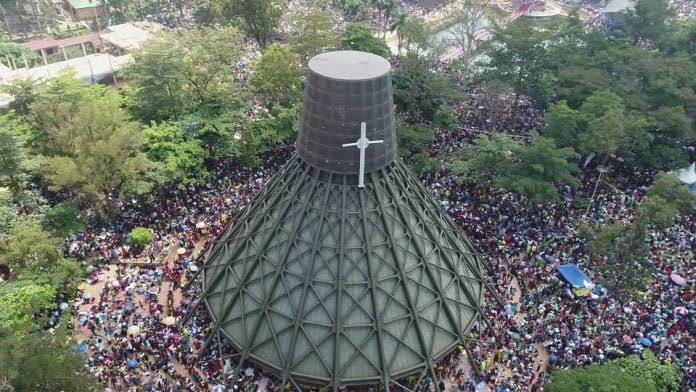
How Former NSSF ED Byarugaba Miss-Advised President Museveni To Launch Lubowa Housing Estate On Non-existing Land.
admin_spyreports Apr 24, 2024 0

Police Officer Who Mortgaged Police Gun At Shs1.5m To Money Render Arrested - Gun Recovered With 30 Rounds Of Ammunition.
admin_spyreports Apr 24, 2024 0

Museveni DRCC Burora Officially Resigns, Castigates Hostility From The Office Of The President.
admin_spyreports Apr 24, 2024 0

Stop Intimidating Public With Militaristic Attires- Police Caution Bouncers, Private Security Guards.
admin_spyreports Apr 24, 2024 0

Commissioner Land Registration Orders Cancellation Of Fake NSSF Title In Lubowa.
admin_spyreports Apr 23, 2024 0

Parliament Queries The Criteria Used In The Selection And Appointment Of Assistant RDCs
admin_spyreports Apr 23, 2024 0

National Bureau Of NGOs Should Be Under The Ministry Of Internal Affairs-Parliament
admin_spyreports Apr 23, 2024 0

Education Ministry Seeking Shs 36.6bn To Takeover Community,NGO Schools
admin_spyreports Apr 22, 2024 0

Kayunga Police Have Arrested 19-year Woman Over Throwing Her Newborn In Pit Latrine
admin_spyreports Apr 22, 2024 0

Prisons Commissioner General Reshuffles Service Officers, Others Sent On Leave.
admin_spyreports Apr 22, 2024 0

Heavy Down Pour partially sunk in Kampala -Masaka Highway, Police Diverts Traffic.
admin_spyreports Apr 21, 2024 0

Angry Man Murders Wife In Cold Blood, Takes Rat Poison.
admin_spyreports Apr 21, 2024 0

Bizarre! Resident Threatens To Kill Police Officers - Wants DPC, OC CID And OC Police Station Transferred
admin_spyreports Apr 20, 2024 0

President Museveni Appointed Dr. Byanyima Rosemary Kusaba As The Executive Director Of Mulago National Referral Hospital.
admin_spyreports Apr 20, 2024 0

William Ruto Urges Muslim Community To Continue Praying For Unity As They Celebrate Eid al fitr.r
admin_spyreports Apr 10, 2024 0

We Need To Ensure Security Of Vital Assets And Strategic Installations – Major General Kyanda
admin_spyreports Feb 28, 2024 0



























































































































